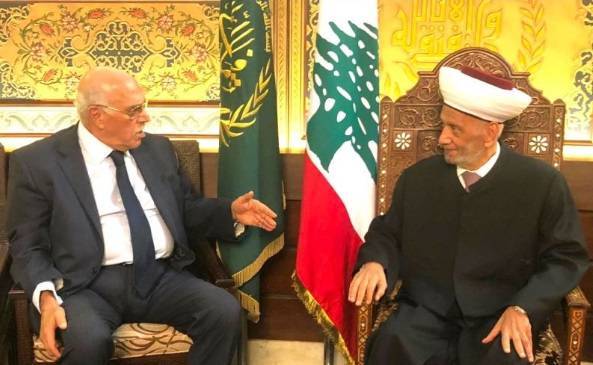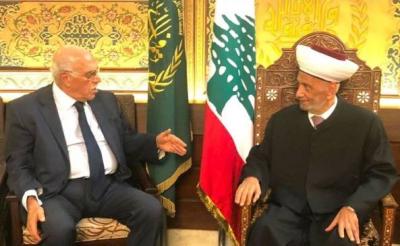Former Minister Faris Boueiz confirmed that the difficult and historic circumstances put us in what feels like the most dangerous timing and situation of this century. After meeting with the Grand Mufti of Lebanon, Sheikh Abdul Latif Daryan, he said, "We came to His Eminence the Mufti to exchange views and discuss what is necessary in case this war expands. Lebanon cannot bear the war and its consequences, and there is a possibility of its expansion; how can Lebanon endure this, at least on a civil level?"
He stated, "From here, we agreed with His Eminence that we must urge those in charge to prompt the government, no matter the cost, regardless of narrow sectarian or political considerations, to encourage the government to develop a resilience plan. This includes a supply plan, a fuel resilience plan, and a budget resilience plan for sensitive ministries, to address potential situations that may arise, and a resilience plan to organize internal migration if that happens, God forbid. All of this requires the government to move in various fields and secure adequate stocks of fuel, medicine, food, and other essentials for the country, and to prepare for the worst. While we hope not to be tested in this worst-case scenario, it is unacceptable, despite the political vacancies we complain about, for the country to be left to face the unknown."
He concluded, "I think we agree with His Eminence on all these matters and the seriousness of the phase we are in; we are not faced with a war, but rather a very dangerous historic project. We are looking at a plan to forcibly displace two million Palestinians from Gaza, which politically is referred to as 'transfer'—a tactic previously employed by Stalin and some dictatorships around the world. We are facing a very serious situation that could impact the entire region."




